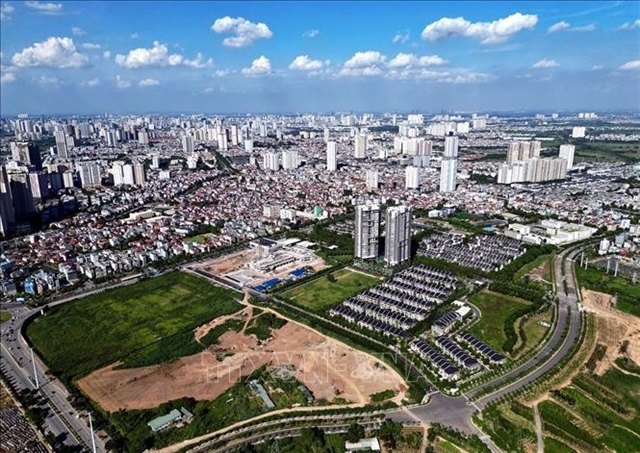Can the home market bounce back?
Can the home market bounce back?
Many Asian property markets have made spectacular recoveries since global economic troubles struck. The multimillion dollar question is, can Vietnam follow in their footsteps, writes Marc Townsend, CBRE Vietnam managing director.

Most residential markets across Asia have recovered strongly since the days of the global financial crisis in late 2008
Some markets such as Hong Kong, Singapore and Bangkok have hit record highs before coming off due to governments bringing in anti-speculator measures to bring prices back to affordable levels for more families.
The common thread running through these Asian markets has been confidence, low inflation, all time low interest rates and a slow, but steady return to growth.
Hanoi and Ho Chi Minh City have been bucking this strong Asian trend in rising residential sector growth, increasing urbanisation, growing affordability and helpful demographics now for five years with very painful consequences for many end users, developers, investors and banks. CBRE Vietnam has been tracking residential prices since 2005 and we believe that we are now back to 2007 prices.
Local Investors have turned their backs on buying property in favour of other assets classes such as gold, Vietnam government bonds and local bank deposit accounts. Since November, 2012 the local stock markets have been regional star performers including certain property stocks.
Earlier this year the Resolution 02/NQ-CP brought in measures to revitalise the property market from the bottom up.
Developers that were attracted to the mid to high end sector have been saddled with low sales rates, high interest rates and in many cases been forced to stop construction. We note that most listed developers that have to declare the audited accounts have made wafer thin profits for the last three years. These developers are not in a good position to take advantage of the new opportunities that come out of Resolution 2 regarding government funding because they cannot quickly reconfigure the of their units for sale or indeed their pricing.
Local developers that had a different view of the market and focused on the more affordable end of the market have fared somewhat better with more sustainable sales throughout the last 24 months. Indeed with very few exceptions only well priced affordable and low-end developments have been salable.
In the last few months developers have resorted to deeper discounts, guaranteed yields and rent to buy options to move their inventory. We believe that the overhanging unfinished stock is currently in the region of 50,000 units of which 50 per cent of this is unsold. Observers and analysts have different views on how long this inventory will take to be absorbed.
Our research for Hanoi and the southern hub suggests that at the height of the market primary sales accounted for 16,000 sales in 2009 and 2010. Since then annual sales have dropped to below 5,000 in both Hanoi and Ho Chi Minh City.
Meanwhile in Bangkok sales in the same period have grown from 5,000 to 7,000 per annum and in Singapore, sales in 2010 was 16,292 units, in 2011 was 15,904 units and in 2012 was 22, 219 units.
For the Bangkok market anecdotally foreigners now make up for 20 per cent of the purchases and in Singapore foreigner investors and IR card holders make up 17 per cent of buyers.
With deposit rates peaking at 16 per cent last year and with 700bp reduction over the last 18 months and the global gold price coming off 13 per cent year to date, some people believe that real estate will come back in focus in 2013.
The government is hoping that the measures in Resolution 02 will address the affordability issues from the buyers prospective and force developers to focus on the wider sector of the housing market. None of this will happen quickly. It will take time for developers to recalibrate their inventory. Many of them have heavy carrying costs, land clearance issues, amend their licences, limited experience and inappropriate sites for this sector of the market.
In the meantime, the occupancy of the finished developments is slowly filling with owner occupiers and tenants. Yields are regionally high reaching 6 to 8 per cent. Foreigners are now not the only people renting. Local families that turned their back on buying in the hope that prices would continue to fall have also become tenants whilst they sit out the storm. As other asset class become less attractive we believe that this group will begin to slowly reenter the condo market, with or without Resolution 02.
vir

























